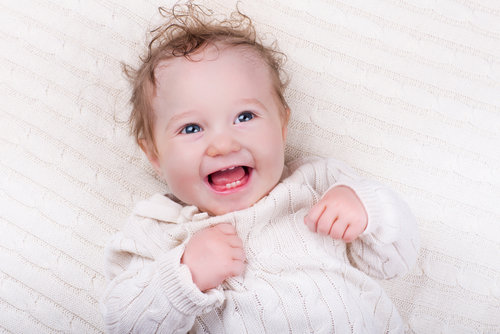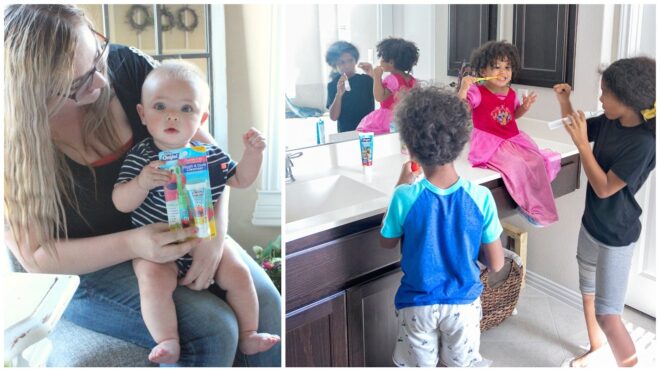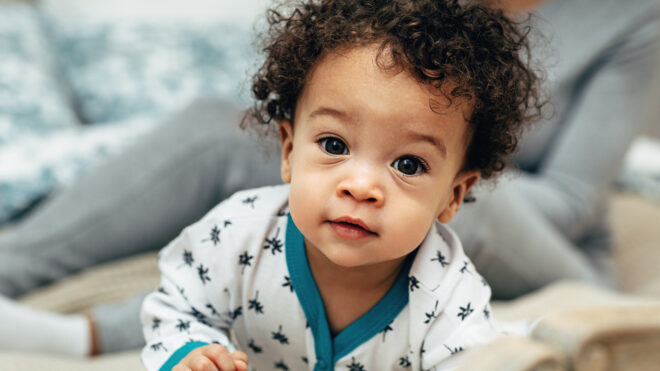
When it comes to a teething baby, most parents are counting down the minutes until that little white tooth finally pokes through the gums — and the screaming stops, of course. Parents who find themselves waiting longer than others might take comfort in that old wives' tale that says the longer it takes for baby to get his or her first tooth, the stronger those choppers will be. But is there any truth to that theory?
CafeMom asked Timothy Chase, a dentist at SmilesNY, to weigh in on whether it's better to be a late bloomer when it comes to cutting those baby teeth.
"Not to my knowledge," Dr. Chase says. "[It's] simply a matter of development. The tooth buds begin to develop while the baby is developing."
Tooth development begins in a fetus during the first trimester in utero, according to the National Center for Biotechnology Information (NCBI).
More from CafeMom: 13 Memes That Hilariously Sum Up Life With a Teething Baby
While teeth develop at the same time during pregnancy, when they erupt is a whole different story.
"Some babies can be born with teeth, and others don't get them until a year old, but the average range is five to 10 months for the first teeth to appear," Dr. Chase explains. "If you do not see any teeth by then, you should check in with a pediatric dentist."
More from CafeMom: The 9 Harrowing Stages of Teething Every Mom Experiences
If your baby has just celebrated a first birthday and is still all gums, don't panic. Not sprouting a tooth for up to 12 months may be of little or no importance in an otherwise healthy child, according to the NCBI.
So, while it's almost impossible for a parent of a toothless tot not to worry, like many other milestones, there's a range when it comes to cutting teeth — with some babies not getting their first tooth until 15 months.
And, as tempting as it is to want to believe those late arrivals signal stronger teeth, there doesn't seem to be any science to back up those claims.
"There is no evidence to support that later eruption means stronger teeth," David Krol, MD, FAAP, chairperson of the American Academy of Pediatrics Section on Oral Health, confirmed to CafeMom.
Patricia Braun, MD, FAAP, also of the AAP, concurs. "I know of no scientific evidence supporting the idea that baby teeth which erupt later are stronger," she noted. "However, the later teeth erupt, the less time they are exposed to cariogenic (cavity-forming) behaviors such as sleeping with a bottle, not getting brushed, etc."
But as long as the teething-related crying stops and your baby is comfortable again, that's really all any parent could hope for anyway.
Image via FamVeld/Shutterstock







